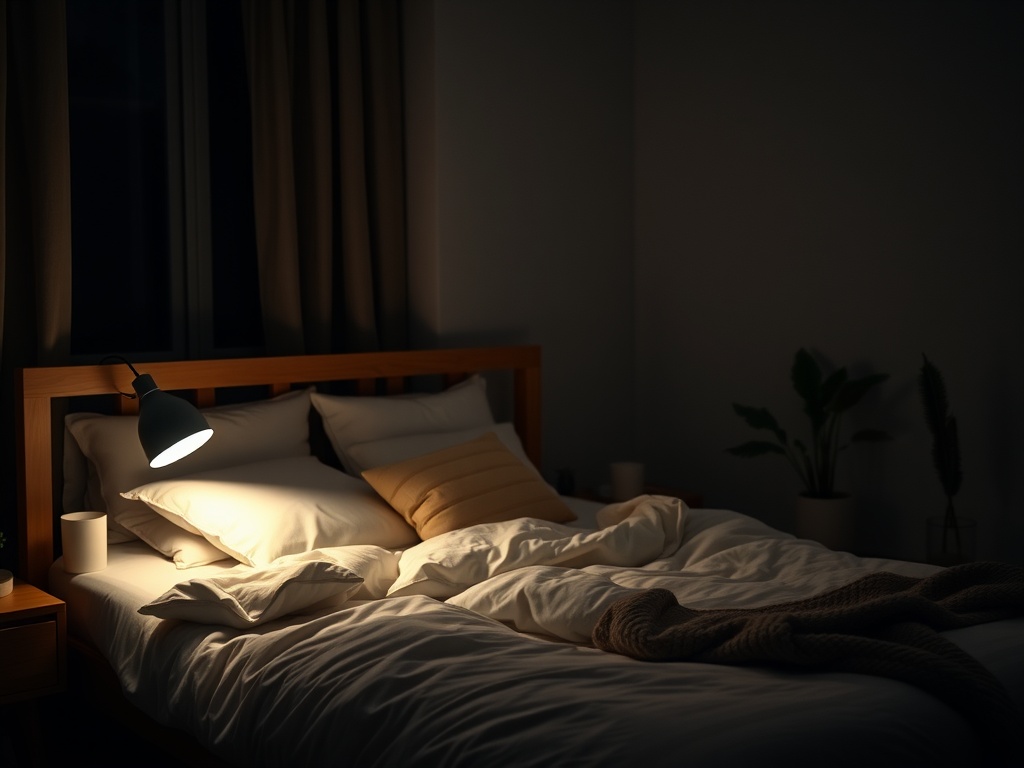The Pursuit of Sleep: A Cultural Preoccupation
As a society, we are increasingly obsessed with the notion of sleep. This preoccupation is perhaps understandable, given that Mental Health UK reports that one in five individuals is not getting an adequate amount of sleep. Consequently, an entire industry has emerged, with various claims of solutions ranging from expert-recommended bedtime routines to pricey, often dubious products. However, expert sleep therapist and psychotherapist Heather Darwall-Smith suggests that we might be approaching the issue from the wrong angle. In her insightful book, How to Be Awake (So You Can Sleep Through the Night), she asserts that, “the harder you chase sleep, the further it runs away.” Rather than treating sleep as an adversary to be defeated, she encourages us to view it as a reflection of our daily lives—“it mirrors how you navigate your days.”
With this perspective in mind, The i Paper engaged with Darwall-Smith to glean her insights on how to align our daily habits for better sleep. It’s important to note that none of her suggestions are quick fixes; in fact, she advocates for abandoning the “quick fix” mindset altogether. “We live in a culture where we expect instant solutions,” she explains. “However, just because these techniques may not yield immediate results doesn’t mean they won’t work—it’s about building resilience rather than expecting rapid transformation.”
Understanding Tiredness Versus Sleepiness
Darwall-Smith highlights a crucial distinction between tiredness and sleepiness, and recognizing this difference is vital for addressing sleep issues. “If you are sleepy, you can lay your head down on a table and drift off,” she notes, “but if you’re merely tired, that’s a different scenario.” This differentiation arises from the fact that sleepiness and tiredness are governed by distinct biological processes.
- Sleepiness is regulated by a brain chemical called adenosine, which generates “sleep pressure” and influences our circadian rhythms. This chemical accumulates throughout the day, building up until bedtime.
- Tiredness, conversely, typically stems from mental or physical fatigue. This could result from emotional exhaustion, stress, or simply neglecting to take breaks. It often coexists with physiological arousal, which can hinder the ability to sleep even when one is exhausted.
Thus, if you find yourself feeling fatigued but not genuinely sleepy, a good night’s sleep—or even several—won’t necessarily resolve the issue. Instead, it may be more beneficial to remain awake while engaging in calming activities. By understanding the difference, you can equip yourself with the right tools to manage both conditions effectively.
Establish a Consistent Wake-Up Time
Aligning with your circadian rhythm, or body clock, is integral to achieving restorative sleep. This rhythm is embedded within our cellular structure, which is why Darwall-Smith emphasizes the importance of rising at the same time each day. “Getting up at a consistent hour acts as a firm commitment to your body’s rhythm,” she explains. “You don’t need to be rigid, but maintaining some level of consistency can have a profound ripple effect.”
Our cortisol levels peak shortly after waking. About 12-14 hours post-peak, our bodies begin to produce melatonin, the hormone associated with sleepiness. “By waking at the same time daily, you anchor your cortisol peak, which stabilizes melatonin production in the evening,” Darwall-Smith clarifies. This consistency helps other bodily rhythms to align as well.
The Importance of a High-Protein Breakfast

While waking at the same time is foundational, what we consume is equally significant. “Cortisol levels rise the moment we wake up, which may tempt us to rush out the door,” says Darwall-Smith. “However, taking the time to enjoy a protein-rich breakfast can mitigate stress levels right from the start.” This approach prevents you from entering a more accelerated, stressed state before ultimately crashing.
“Nutrition matters,” she insists. “You want to avoid the blood sugar spikes that come from consuming simple carbohydrates, sugar, and caffeine. Instead, aim for protein, slow-release carbs, and fiber to nourish your body effectively.” Additionally, it may be wise to postpone your caffeine intake until your day is fully underway. While coffee may provide a temporary boost by blocking adenosine receptors in the brain, it cannot halt adenosine production. Consequently, when the caffeine effect diminishes, you may experience a crash.
Expose Yourself to Natural Light Immediately
Natural light serves as a significant trigger for regulating your sleep-wake cycle, according to Darwall-Smith. “We have evolved to respond to the natural rise and fall of sunlight,” she explains. “Specific cells in our eyes monitor light levels throughout the day, helping us understand when it’s time to be awake.” If waking at a consistent time proves challenging initially, exposure to natural light can assist in adjusting your internal clock. “Even for those who identify as night owls, morning light can have a positive impact,” she adds.
Prioritize Rest
While sleep addresses sleepiness, rest is the antidote to fatigue. Rather than viewing rest as time wasted, recognize that it plays a crucial role in managing stress and allowing our minds to recharge. Without adequate rest, sleep quality may suffer. “We really need to rest,” Darwall-Smith asserts. “We often collect countless thoughts and ideas throughout the day, and when we finally lay down to sleep, our minds race with everything we’ve accumulated.” This mental hyperarousal can prevent sleep from occurring, even when sleep pressure is present.
Practice Deep Breathing
“Often, we attribute fatigue and lack of focus to poor sleep, but chronic stress is typically the underlying issue,” Darwall-Smith explains. Engaging the vagus nerve can effectively help regulate our biological stress responses. “The vagus nerve, the largest nerve in our body, connects the brain to nearly every organ,” she elaborates. Activating this nerve prompts our parasympathetic nervous system, encouraging relaxation throughout the body. This state, known as the ventral vagal state, contrasts with the sympathetic nervous system, which triggers our fight-or-flight response in times of stress.
While experiencing stress is both unavoidable and beneficial in moderation, triggering the vagus nerve provides essential rest. One effective method to access this relaxation is through deep breathing. “Breathing deeply through your diaphragm activates the vagus nerve, sending messages of relaxation throughout your system,” she advises. Consider breathing as if you’re unzipping and rezipping a jacket—feel the breath at both ends for a moment while observing your surroundings. “As stress rises, our vision narrows. Taking a moment to breathe and look around can offer a powerful reset.”
Make Time for Fun
Engaging in enjoyable activities is not just pleasurable—it’s essential. Make it a priority to carve out time in your day for genuine, absorbing fun, whether that means getting wrapped up in a captivating TV show, spending quality time with friends, or simply laughing at a funny video. “Play and leisure activate the parasympathetic nervous system, reduce stress, and release feel-good hormones. They also help shift our focus from problem-solving to restoration. Sometimes, we simply need to let go and enjoy a laugh,” Darwall-Smith states.
She doesn’t view social media as an outright enemy of sleep; rather, she advocates for moderation and incorporating it into a broader schedule of fun activities. “When using devices, we often become insular. By engaging in fun activities with others, we redirect our focus outward, which can be beneficial.”
Embrace the Art of Doing Nothing
The idea of doing nothing may seem dull or even unattainable. In our fast-paced world, we often seek distractions to escape our realities. However, allocating a brief period each day to do nothing allows your mind and body to reconnect, especially during stressful times. “Our brains require this downtime,” Darwall-Smith emphasizes. “In a hyper-connected yet isolated world, we are often counteracting our natural needs. We need space in our minds.” Whether it’s a train ride where you gaze out the window (without your phone) or a walk without headphones, or simply sitting quietly for a few moments, you may be surprised at how refreshed you feel afterward.
Trust Your Body’s Ability to Sleep
Lastly, if sleep is a source of anxiety—whether it’s about achieving enough or securing quality rest—Darwall-Smith advises remembering that our bodies are inherently designed for sleep. By working in harmony with our biological makeup and reducing self-imposed pressure, we can gradually invite that elusive “good night’s sleep” back into our lives.




